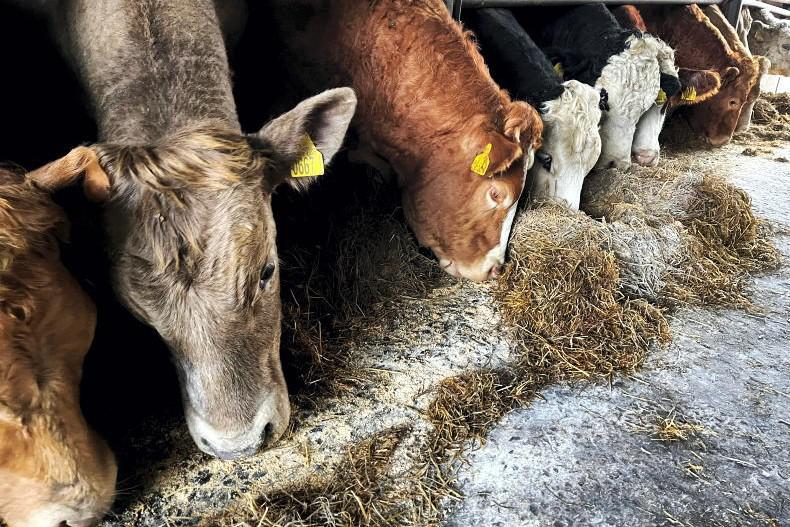The Ulster Farmers’ Union (UFU) has ramped up efforts to get local politicians on side ahead of a specific climate change plan being set for the NI agriculture sector.
At Stormont on Wednesday, UFU president David Brown told MLAs that NI farmers were fully committed to reducing greenhouse gas emissions.
“We recognise agriculture is a key source of emissions in NI, but it’s vital that a balance is struck between reducing emissions and feeding people,” he said.
Booklet
All MLAs received a booklet from the UFU which explains key priorities for the NI agriculture sector as more steps are taken to cut emissions.
In particular, the UFU wants climate action plans, which are a requirement of new NI climate legislation, to give “proper recognition” to carbon that is removed from the atmosphere by farms.
Under the current emissions reporting system, carbon that is stored in soils, trees and hedgerows on farms helps lower emissions from the land use sector, not agriculture. Similarly, renewable technologies on farms only help lower emissions from the energy sector.
The UFU wants this reporting system reviewed to “ensure it properly reflects and presents the full contribution agriculture makes as a source and sink of greenhouse gases and renewable energy producer”.
The UFU booklet also states that methane, which is emitted by ruminant livestock, is a short-lived greenhouse gas that “must be treated differently” to carbon dioxide from fossil fuels.
Food production
A key focus of the UFU’s lobbying efforts is to make clear that, while emissions from farming must reduce, it is essential that local food production continues.
“Food production and climate change must be looked at in a global context as we strive to reduce emissions and feed a growing population,” Brown said.
The booklet states that climate change “will not be halted” if food production is curtailed in NI only to be increased in other countries where farming has a higher carbon footprint.
It was pointed out that the 2015 Paris Accord, a landmark international agreement on climate change, recognises “the fundamental priority of safeguarding food security”.
Fertilisers
More technical aspects of agricultural emissions were also discussed with MLAs. For example, artificial fertilisers are a key source of the potent greenhouse gas nitrous oxide.
Research was cited which shows that only half of the global population could be fed if synthetic nitrogen fertilisers were not used in agriculture.
“It is not an option to stop this practice, but to refine it and minimise losses to the environment,” the UFU states.










SHARING OPTIONS